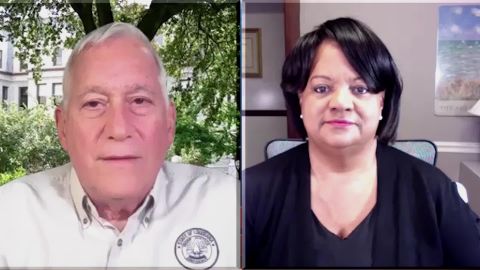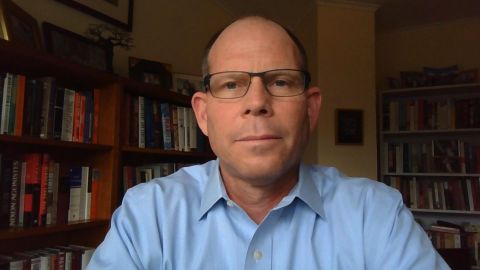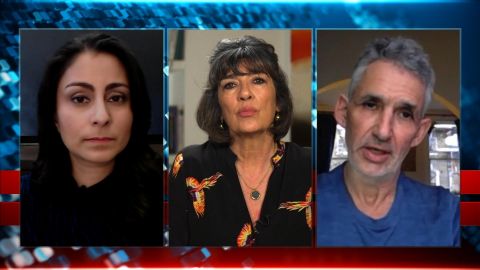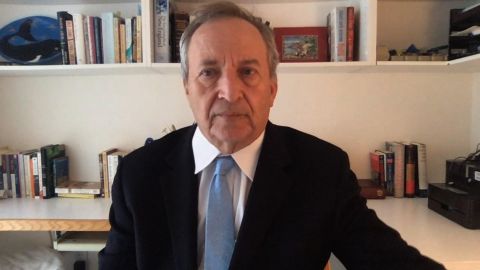Read Transcript EXPAND
TIM SPECTOR, LEAD RESEARCHER, COVID SYMPTOM TRACKER: I think there’s a general idea in the NHS that if you do things centrally, it’s done well. And so, they had this idea they could do everything in this center just outside London in Callendale. And that no one was allowed to get involved, because — I actually was approached by a company about six weeks ago who had a rapid test. And I tried to get them some samples to test on it. They’re almost giving them anyway. They’ve said, no, no, we’re developing R1, we’re going to make it big, it’s all going to be fine. So, they really cut off any sort of entrepreneurial activity quite early through this centralized system, which in other situations, can work well. But I think in this one, as we’re clearly seeing, it’s breaking down. It’s more of a mindset, I guess, about how the government tends to work in a place like U.K., dominated with one big city.
AMANPOUR: So, in the last 24 hours, in the U.K., 569 people have died of coronavirus. That’s the biggest leap since this crisis began. The biggest 24-hour leap since this crisis began. I want to quickly turn over now to the United States, to Dr. Celine Gounder. You also have major problems of testing there. The president promised 5 million, you know, very, very rapidly, maybe a million tests have been done and produced. What is the structural impact, Dr. Gounder, as best you know it, to the lack of testing there and presumably, unlike in Britain, it’s not too late to keep testing and therefore, isolating and figuring out, you know, what is the pattern and how best to stop this?
DR. CELINE GOUNDER, CNN MEDICAL CORRESPONDENT: Right. So, just to back up a little bit, Christiane. I think it’s helpful for people to understand, there are different kinds of tests. So, there’s the PCR test, which is to look for the DNA, RNA of the virus, the genetic material of the virus in a person. And the purpose of that test is to figure out if the patient sitting in front of you has COVID-19. And that is really necessary when you have a patient who comes in with symptoms of, you know, respiratory distress that could be caused by any number of conditions, not just COVID- 19, and where what you do in terms of treatment will really matter. There’s a second kind of test that’s just coming online in the United States now and is also available elsewhere, which is antibody testing. Now, antibody testing will tell you if somebody has been infected in the past and if they are likely to be immune. And I think for much of the general public, that’s actually what they want to know. They want to know. Were the symptoms I had a month ago from COVID-19. And we would also like to know, for both health care workers as well as other essential workers, have they already had this, have they already been exposed and might may they already be immune, in which case it would be safer to send them back to work than somebody who has not yet been exposed.
About This Episode EXPAND
Christiane speaks with former treasury secretary Lawrence Summers about the huge surge of unemployment claims; Tim Spector and Dr. Celine Gounder about the UK’s lack of COVID-19 testing; and Mark Suzman about how the Bill & Melinda Gates Foundation is helping to fight the pandemic. Walter Isaacson speaks with former U.S. Surgeon General Dr. Regina Benjamin about dealing with disaster.
LEARN MORE



